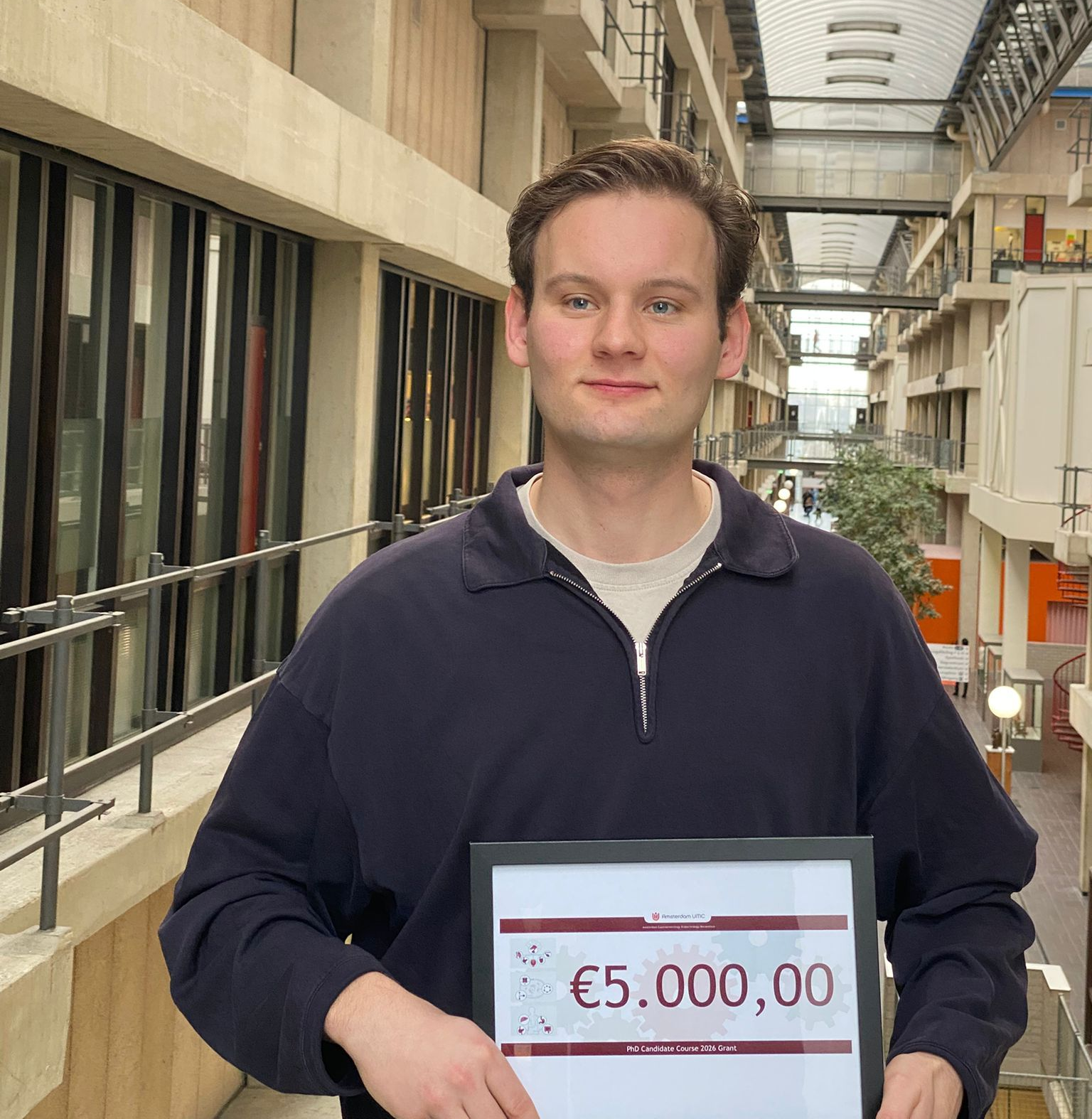Marten Hoeksema received a Bertus Kemp Stipendium from the "Genootschap ter bevordering van Natuur-, Genees- en Heelkunde". The aim is to study kinase activity differences in macrophages activated with various cytokines. The grant will be used for this research as well as a work visit to the lab of collaborator dr. Emiel van der Vorst at the university of Aachen.

Bertus Kemp was a biochemist at the University of Amsterdam, who was well known for his work on the biochemistry of connective tissue. He held a keen interest in prolyl hydroxylases and ATP synthase and incorporated azido-labelled substrate analogues in his research.
The ‘Stipendium Bertus Kemp’ of € 20.000 is awarded to an early-stage scientist in The Netherlands working at a university or research institute in Amsterdam, who needs financial support to extend her/his network and initiate novel or strengthen existing (inter)national collaborations for future applications for consortium grants, all aimed at making new discoveries in the field of biochemistry.
Source: https://gngh.nl/beurzen-en-bijdragen/


